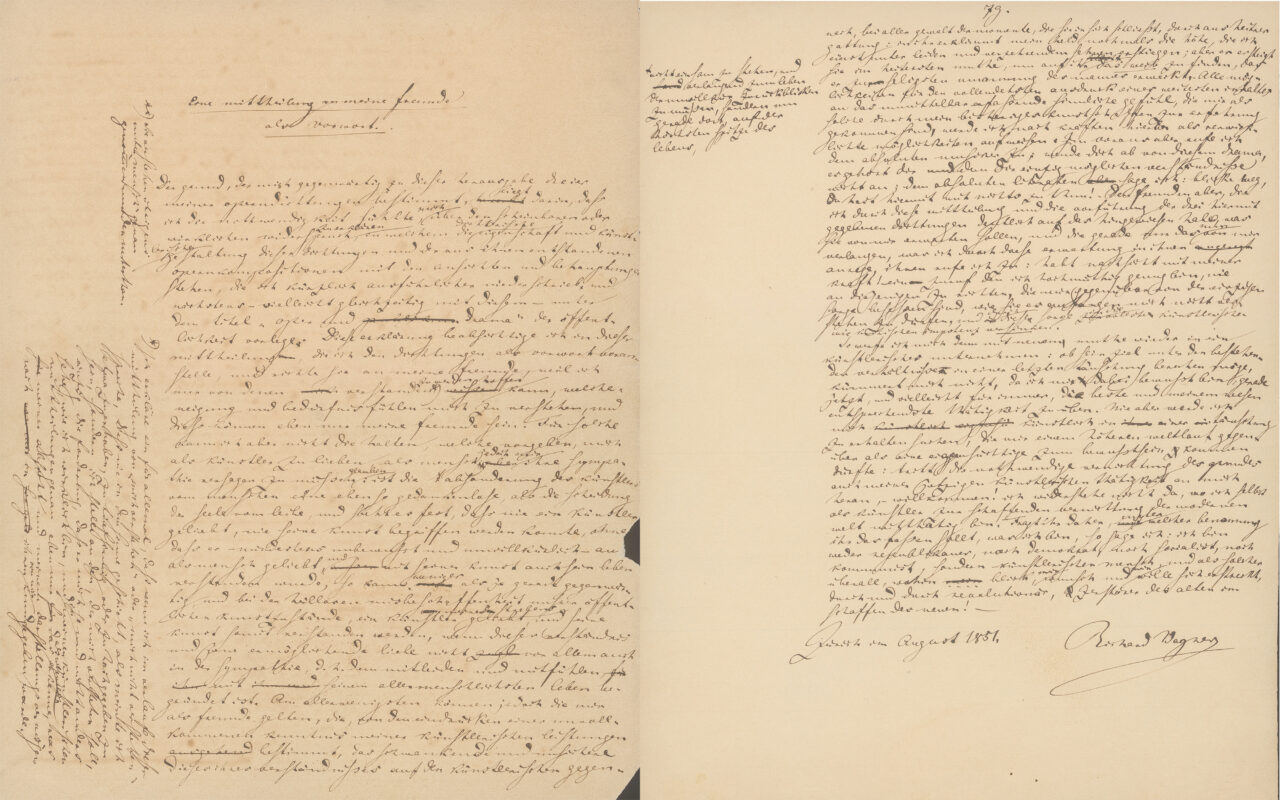Well-written texts convey music
A study by the Max Planck Institute for Empirical Aesthetics in Frankfurt puts the influence of composer prestige in the evaluation of classical music into perspective and shows: The enjoyment of music is enhanced by lively texts.

Listening to classical music is often accompanied by information about the pieces: Program booklets are distributed at concerts and operas, every good classical CD comes with a booklet and classical pieces are introduced on the radio. A study at the Max Planck Institute for Empirical Aesthetics has now investigated the influence of various types of information on the evaluation of the music listened to.
The researchers were concerned with two questions: Does the composer's fame have an influence on the liking of the pieces? How do stylistically different introductory texts influence the appreciation of the music? All participants listened to a Sinfonia by Josef Mysliveček (1737-1781) as part of the study. While half of the participants were given the correct information about the author of the piece, the other half were told that it was a piece by Wolfgang Amadé Mozart (1756-1791). Before listening, the participants in both groups also read a short introduction: one group received a text that described the expressive significance of the Sinfonia in a lively, sometimes flowery way, while the text of the second group explained the formal characteristics of the Sinfonia. After listening, all participants rated the Sinfonia according to how much they liked the music, among other things.
The results, recently published in the journal Psychology of Music, confirm the obvious assumption that prior information has a lasting influence on the listening experience of music. The research team was able to observe an age effect with regard to prestige: In contrast to older participants, younger ones liked the piece better when it was attributed to Mozart. This result confirms observations from previous studies. In contrast to previous studies, however, older listeners also took part in this study, for whom the attribution to Mozart had no effect on how well they liked the piece. The apparent immunity of the older participants - the majority of whom were experienced music lovers - indicates that musical-stylistic experiences can protect against external influences on the evaluation of music.
In contrast, the style in which the text was written had a strong effect across all age groups: the participants in the group who had read the expressive text liked the same music better than those whose text presented sober, music-analytical information
Original publication: Fischinger, T., Kaufmann, M., & Schlotz, W. (2018). If it's Mozart, it must be good? The influence of textual information and age on musical appreciation. Psychology of Music. Advance online publication. DOI:10.1177/0305735618812216
Linked photo credits: Rudis-Fotoseite.de / pixelio.de







